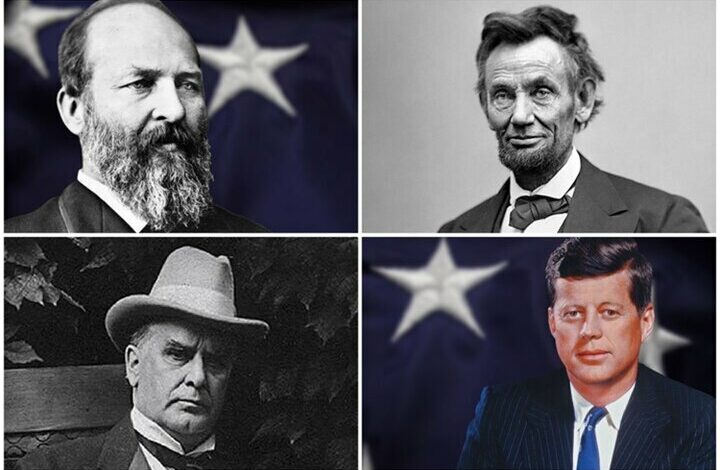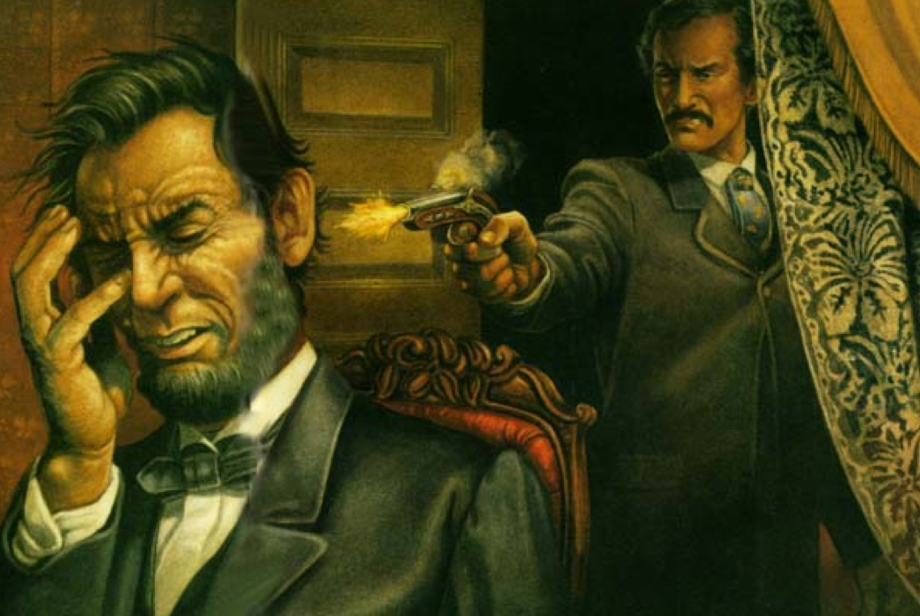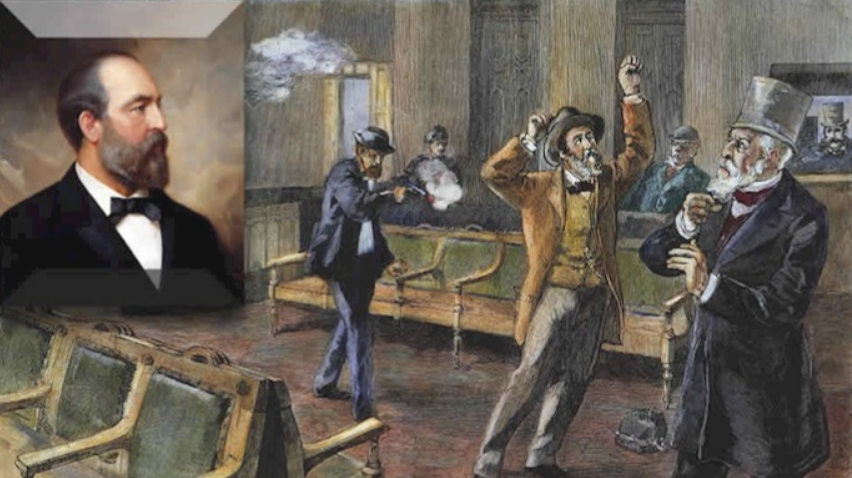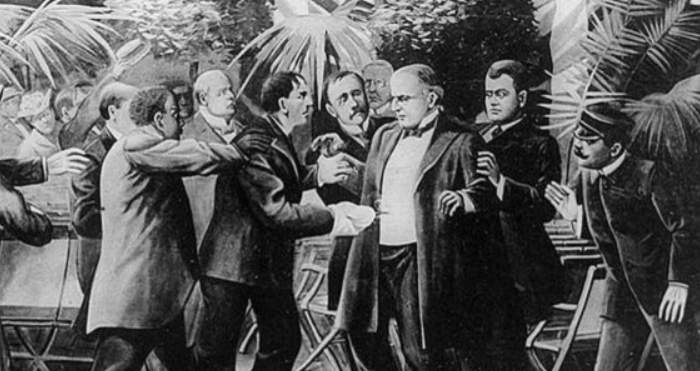The obvious and hidden secrets of American historical assassinations; From Lincoln to Kennedy

= “Saba-backlink” href = “https://www.mehrnews.com”> Mehr News Agency , International Group: New US President Donald Trump Thursday (February 6th) He signed an executive order, which US officials are obliged to assassinate John F. assassination documents within five days. Kennedy »Publishes the Thirty -fifth US President.
After Trump’s order, the question was raised in the public mind to which one of the US presidents has been victimized to date and whether details related to murder cases Are they exposed or are they in a halo of ambiguity?
1. Abraham Lincoln

The assassination of Abraham Lincoln, the 16th US President, took place on April 7 at the Ford Theater in Washington, DC. Lincoln was targeted by John Wilks Booth, a staunch actress and fan of the South Confederations while watching the comedy show of our American Cousin Cousin.
Booth, who was unhappy with the Confederations’ defeat in the US Civil War (1-5), decided to kill Lincoln and thus hit the Union Government. . This assassination occurred on the last nights of the Civil War; When the union’s victory in the war was almost certain.
John Wilks Booth was a well-known figure in American theaters and an actor family, but his political beliefs made Lincoln’s assassination plan. After the murder of Lincoln, Booth quickly fled the scene of the incident and then hid in Maryland. Extensive investigations and search continued to find Booth, and he was eventually besieged and killed on April 7 on a farm near the city of Bernenton, Virginia.
Lincoln’s assassination was not only a hard blow to the American nation, but also fueled political and social change. The murder of Lincoln made Vice President Andrew Johnson became president. Johnson, who was a supporter of software policies against the southern states, faced strong opposition from Congress, and his presidency faced numerous political and social crises. Lincoln’s assassination was in fact a turning point in American history that had a profound impact on the process of rebuilding and distributing power in the country.
۱. James Garfield

James A assassination. The twenty -first US president Garfield took place on July 1. Garfield, only six months after his presidency, in Washington, DC, at the Union Station train station by Charles J. Gito, a frustrated, unsuccessful person who sought to appoint a government post, was targeted. Gito was dissatisfied and disappointed with failing to reach a government official and decided to kill Garfield. He approached Garfield and shot in a moment. The bullet hit the president’s side.
Although Garfield survived and even reacted to himself, his wounds were very severe and eventually led to his death. Garfield eventually died on September 9 after 6 months of suffering. The assassination had a profound effect on American history and caused changes in the president’s medical and security system.
Garfield’s killer was tried after arrest and was sentenced to death for murder. He was executed in year 6. The assassination of Garfield, in addition to paying more attention to the president’s security, has indirectly led to administrative reforms in the US employment system. In year 4, the Pendleton Act was passed, which, after the incident, replaced the meritocracy system in government employment, and since then, government posts had to be awarded through competence tests rather than on political relations. P>
۱. William McKinley

The assassination of William McKinley, the 25th US President, took place on September 9 in Buffalo, New York. McKinley was participating in the Panamayaka Exhibition, which was held on the occasion of the country’s industrial and commercial progress. The exhibition was a good opportunity for the president to meet ordinary people. On the same day, a man named Leon Chulgosh, an anarchist and opposed to McKekini’s policies, secretly entered the queue of people’s meeting with the president and assassinated him at a proper moment, shooting two bullets into his chest and belly.
McKekinley was quickly taken to the hospital and his condition initially seemed promising, but after a few days, due to infections caused by ulcers and inaccurate treatments, the status of the situation. He got worse and died on September 9. The assassination at the time brought a great shock to the United States, because it was a popular President McKinley who had successfully removed the country from the Spanish -American war (1) and had given it international power.
McKekinley’s killer was quickly tried and sentenced to death. He admitted that he had committed the assassination because of his anarchist beliefs. The assassination also raised concerns about the president’s security and the US government’s security responsibilities. After the assassination of McKinley, Vice President Theodore Roosevelt became president, and his presidency was accompanied by many reforms.
The incident also had a huge impact on US security policies. Following the assassination of McKinley, security measures to protect the president have increased dramatically, and the process of protecting senior government officials became one of the vital issues. The assassination of McKinley also had an impact on changing public attitudes towards anarchism and opposition movements, increasing the suppression and supervision of anarchist groups in the United States.
۱. John F. Kennedy

John F. Kennedy, the thirty -fifth US president, took place on November 7 in Dallas, Texas. Kennedy was shot dead while he was in the streets of Dallas with the presidential convoy. Along with Jackie Kennedy, his wife was crossing the city’s streets without a ceiling car, at which time Lee Harvey Ozwald, a prisoner and former Marxist member, fired three bullets at the president. One of the bullets hit the neck and the other, which made him severely injured. Kennedy was quickly taken to hospital after the bullet fired, but eventually died at 4:30 pm of the same day.
This assassination, known as one of the most prominent events in American history, not only brought a major shock to the people of the country, but also profound impacts on domestic and foreign politics. It had a country. Kennedy’s assassination caused Lyndon B. Johnson, the then Vice President, immediately becomes the presidency and ends the Kennedy’s presidency suddenly and unexpectedly.
Lee Harvey Ozwald, the person accused of murdering Kennedy, just two days after assassination by Jack Ruby, a nightlife owner, while transferring He was in jail, he was killed. The killing of Ozwald has fueled speculation and conspiracy theories. Many people are still looking for the real reasons behind the assassination and other possible roles, as there are various evidences and research that refers to a wider conspiracy. The Warren Commission, which was formed to investigate the incident, concluded that Ozwald had attempted to assassinate alone, but many people and scholars are still skeptical of the report.
Kennedy’s assassination not only had major political and social impacts in the United States, but also led to major cultural and historical changes. The incident was a turning point in American history, and to this day, many people remain in the minds of the people, and it must be seen what dimensions will be revealed after Trump’s ruling to disclose the details of the case.


